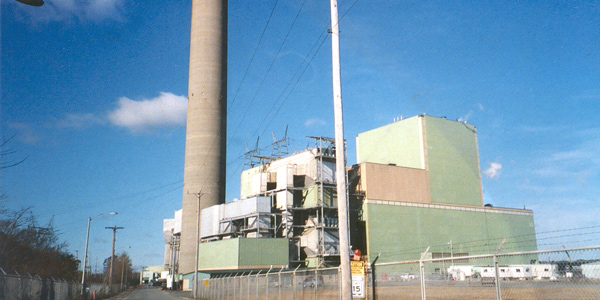By Michael Kuser
Massachusetts generators are worried they won’t be able recover the costs of purchasing additional greenhouse gas allowances after state regulators last month implemented stricter limits on emissions from fossil fuel plants.
ISO-NE is floating a proposed solution.
In a memo issued Friday to the New England Power Pool Markets Committee, the RTO said the early January cold spell has provoked concern among some generators “that they may consume all of their initial allocation of allowances and emit beyond that allocation before the end of the year.”
The generators are questioning their ability to recover costs for buying more allowances through bilateral trading once their initial allowances from the state are exhausted. The new rules require the utilities to purchase at least 16% of their electricity from clean energy sources in 2018, stepping up by a minimum of 2 percentage points annually until 2050. (See Massachusetts Tightens GHG Limits for Generators.)

The 1,113 MW Canal Generating Station in Sandwich, MA is owned and operated by NRG Canal, an affiliate of GenOn Energy Management and NRG Energy | EPA
ISO-NE is proposing a possible recovery mechanism for instances when allowance costs cannot be reflected in a participant’s energy market supply offer. The proposal hinges on a waiver request that GenOn Energy Management filed with FERC earlier this month.
Immature Market
While generators can purchase additional GHG allowances from other participants through secondary markets, the Massachusetts program is only in its first year, and secondary trading is not mature — nor are there reasonably forecasted price ranges, ISO-NE said.
That contention mirrors one made by GenOn, an NRG Energy subsidiary, in its FERC filing requesting a limited, one-time waiver enabling it to seek additional cost recovery for purchases of emissions allowances required under the Massachusetts rule. The company said the waiver would allow purchases that might be needed for the continued operation of its 1,113-MW Canal Generating Station in Sandwich, Mass., “including operation this winter, if and as they become available from other allowance holders later in 2018 and into 2019 or, as a last resort, in an auction for 2019 Massachusetts GHG allowances (which could be used to cover a 2018 shortfall on a three-to-one basis).”

The 1,113 MW Canal Generating Station in Sandwich, MA is owned and operated by NRG Canal, an affiliate of GenOn Energy Management and NRG Energy | EPA
GenOn asked the commission to issue an expedited order on its request by Feb. 2 and sought a shortened comment period of 14 days (with comments due on Jan. 22).
Both ISO-NE and its Internal Market Monitor support the company’s request.
Possible Remedy
GenOn worked with the Monitor last fall to devise an additional GHG cost recovery mechanism under an ISO-NE rule that permits a participant to request additional cost recovery in the event its supply offer is mitigated in the energy market, leaving it unable to recover variable production costs.
The provision requires the participant to initiate a cost recovery request within 20 days of receipt of the first invoice for allowances for the applicable operating day. If additional allowances are bought more than 20 days after operation, the regulatory timing requirements would preclude their use for cost recovery of the additional allowances.
The RTO said it would support such a waiver, provided it can review the waiver request in advance and ensure it is limited only to an extension of time to file for cost recovery. The grid operator also clarified that the additional cost recovery must only cover the cost of purchasing additional allowances.
The Monitor and RTO added a final condition: that cost recovery would only be appropriate to the extent that energy market revenues earned for operation during the period covered by the purchased allowances are insufficient to cover the cost of those allowances, and only to the extent the revenue deficiency resulted from mitigation.
Legal Challenge
GenOn last week also joined with the New England Power Generators Association to file suit in Suffolk County Superior Court against the state for “regulating emissions from the electric generation sector in the same manner as all other sectors of the Massachusetts economy.”
The suit alleges that the state’s GHG rules “are arbitrary and capricious because they will increase statewide greenhouse gas emissions in direct contravention of the express purposes of the Global Warming Solutions Act.”
GenOn cited ISO-NE modeling of the impact of the rules on statewide GHG emissions demonstrating that generators in the region would maintain reliability by shifting electricity production from power plants in Massachusetts to other states. Relatively efficient clean-burning facilities in Massachusetts would therefore operate less, while inefficient and less clean resources in other states would run more.
Finally, the suit alleged that the state agencies exceeded their statutory authority in promulgating mass-based emissions regulations that remain in effect 30 years beyond the sunset date for any such regulations.



